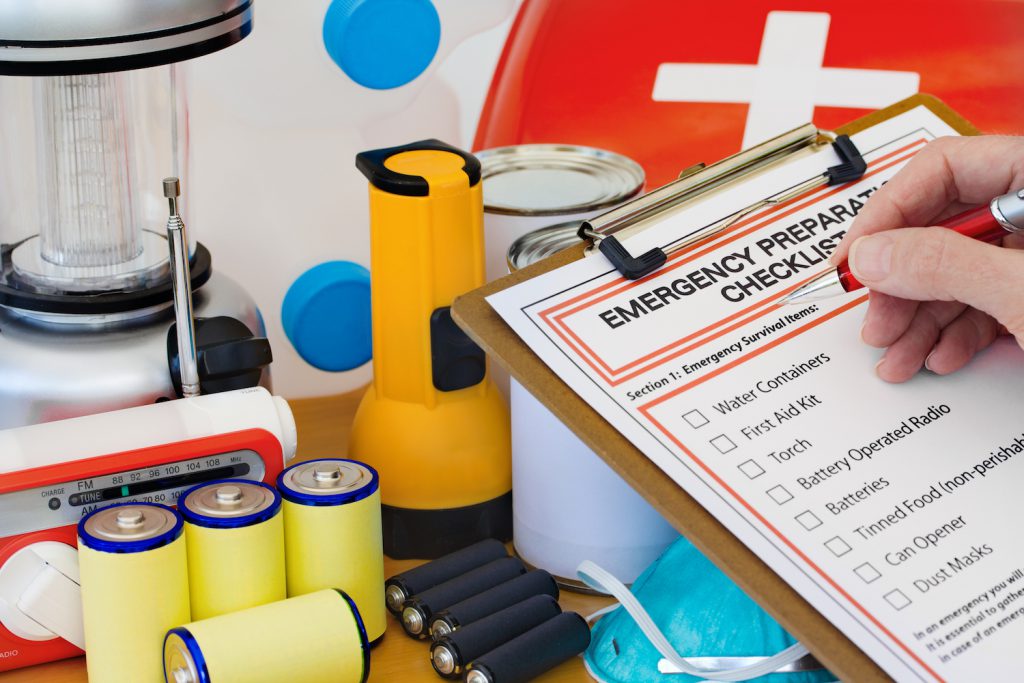Written by Megan Denny
In the event of an emergency or disaster, does your household have enough food, water and basic supplies to last 72 hours or more? Whether you’re building your first emergency kit or already have a disaster preparedness kit, review the list below to ensure your stock of emergency supplies includes all the essential items.
Every household should be prepared with the following emergency supplies:
A family first aid kit (see recommended first aid kit contents)
Water: one gallon per person, per day (3-day minimum, 2-weeks if space is available)
Food: non-perishable and easy to prepare (3-day minimum, 2-weeks if space is available)
Headlamp and flashlights (one per member of the family)
Extra batteries
Battery-powered or hand-crank radio
Medications (7-day supply) and medical items
Multi-purpose tool
Manual can opener
Personal hygiene items (hand sanitizer, toilet paper, feminine products)
Cell phone charger
Written contact information for family/friends
Cash in small bills
Two-way radios
Copies of personal documents (birth certificates, driver’s license, deed to home or lease, insurance policies, prescriptions)
Include the items below based on your family’s needs, local environment, and disasters common to your area:
Baby supplies
Activities for children
Pet supplies
Contact lens supplies or spare eyeglasses
Whistle
Face masks
Matches
Rain gear
Towels
Work gloves
Sturdy shoes comfortable for walking
Plastic sheeting
Duct tape
Scissors
Liquid bleach
Blankets or sleeping bags
If the list above seems like a lot to buy at once, just buy a little at a time. Purchase one item per week, and skip a week if needed to save up for more expensive items. Remember: having a few items is better than having none at all. Start with food and water and buy the rest as time and money allow.
Store your items in a cool, dry place inside a duffle bag (in case of evacuation). Make a note to check your supplies, especially water and batteries, every six months and replace as needed.
If resources and storage space allow, assemble a small emergency kit for your vehicle and place of work. Include items to get you through 24 hours including food, water, comfortable walking shoes and medications if applicable.

